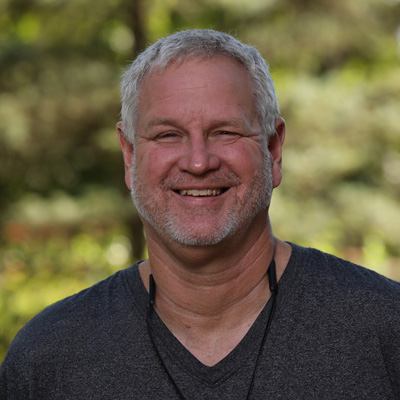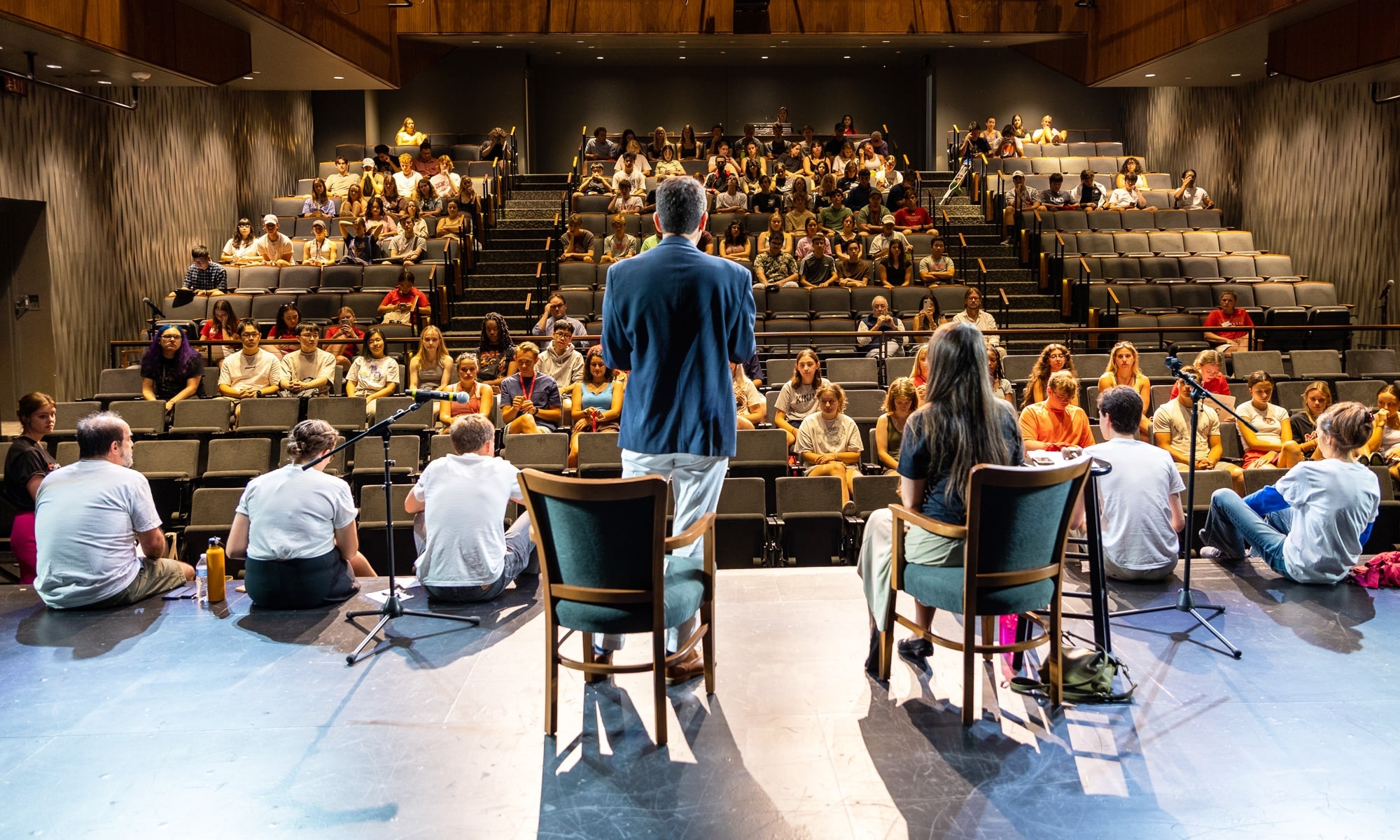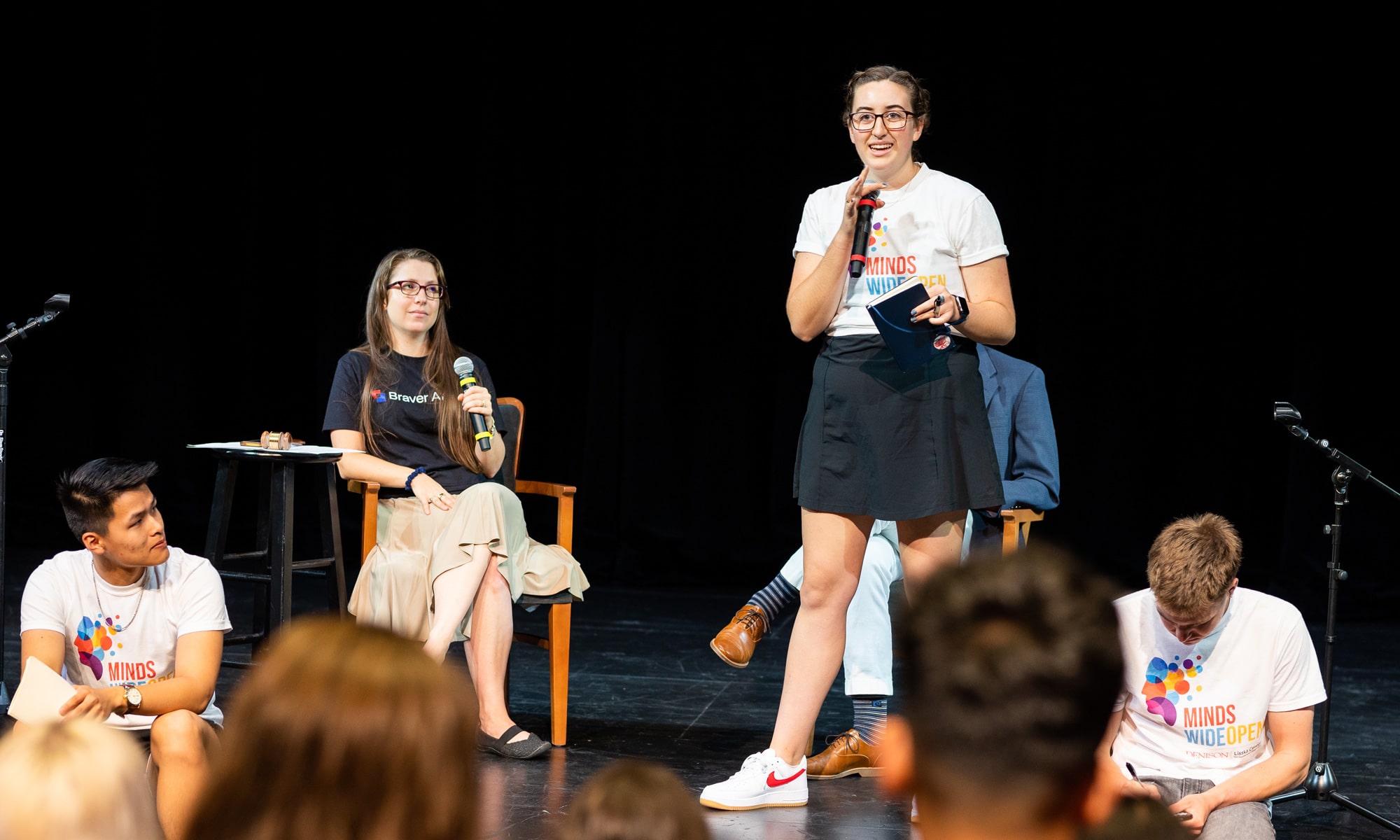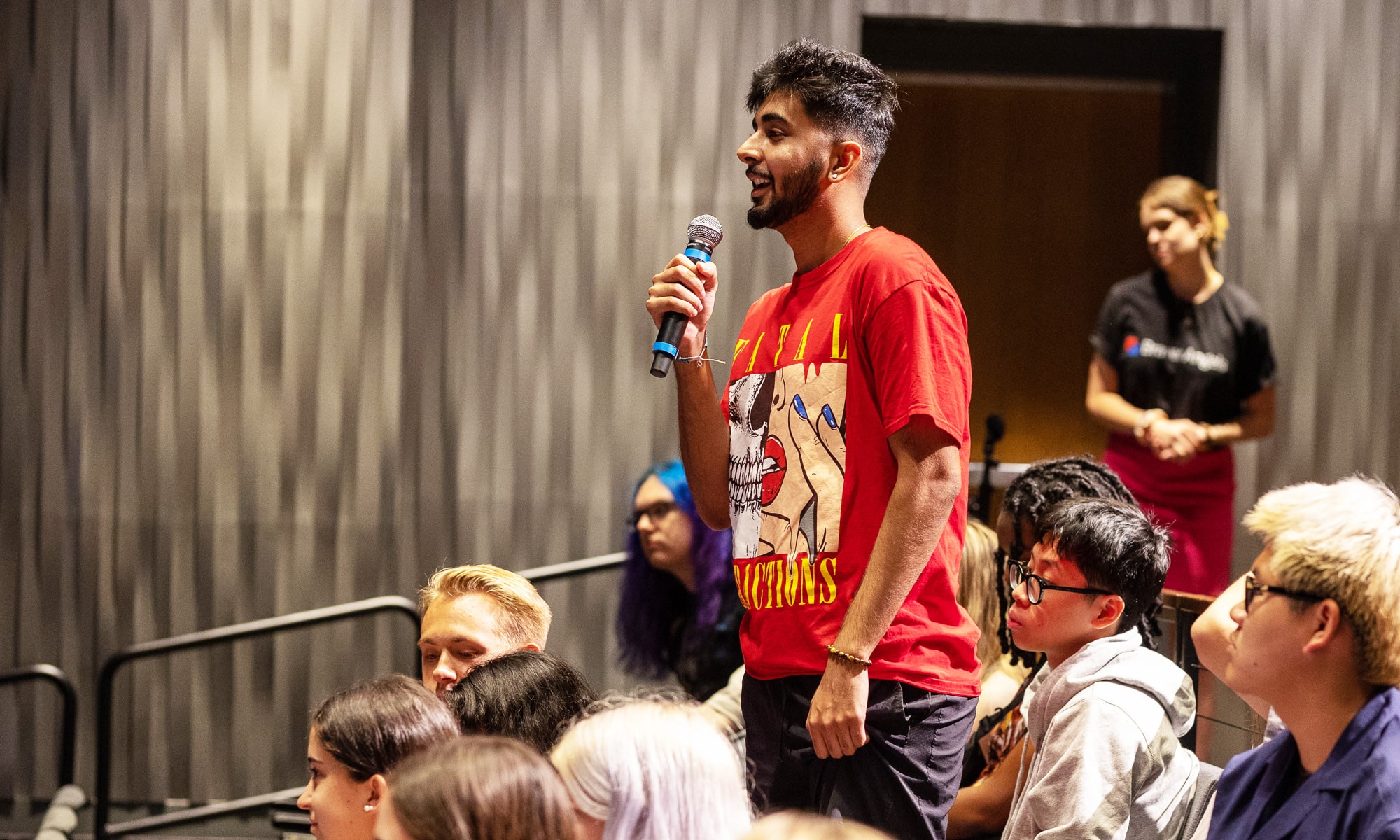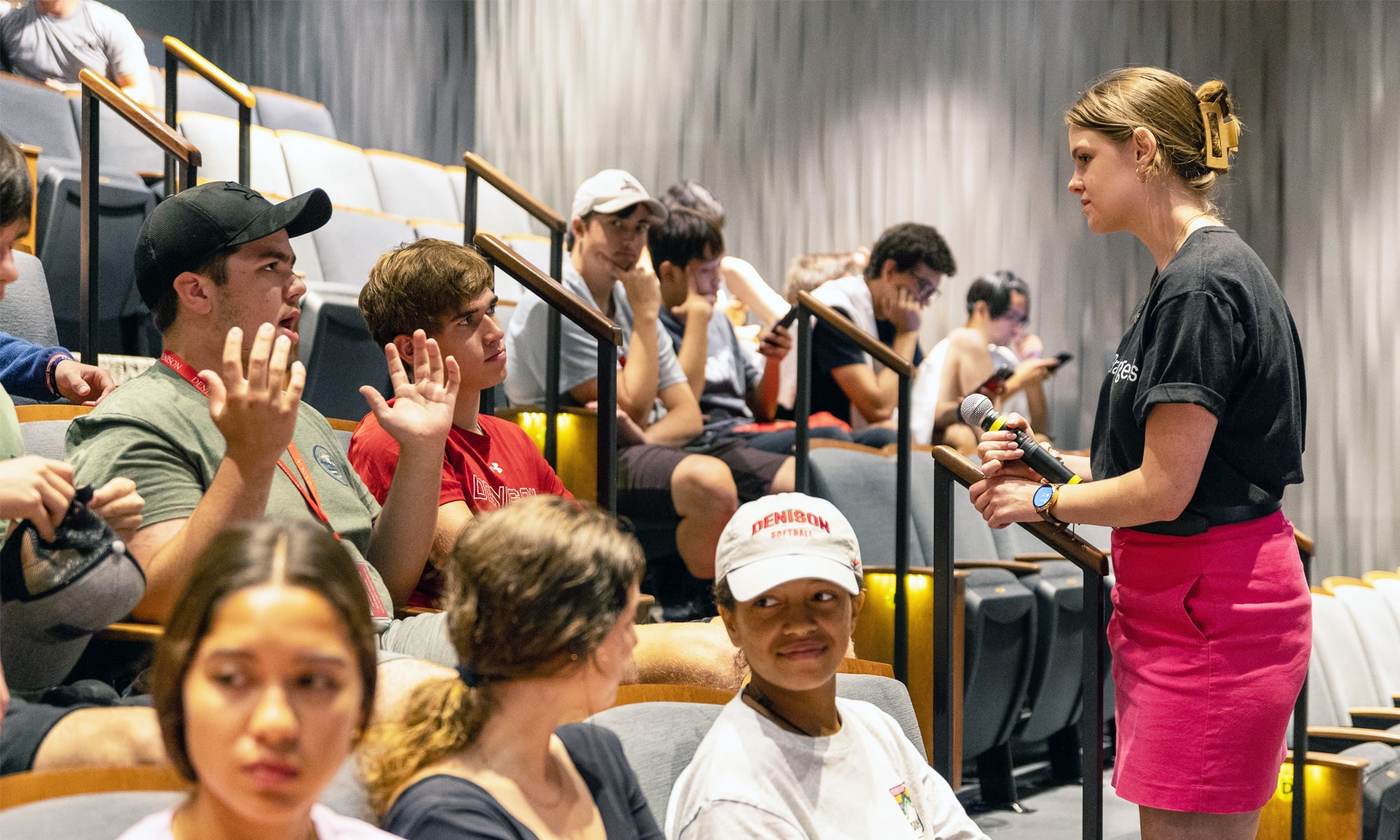Madeleine Murphy ’23 stepped onstage in front of about 240 first-year students in Sharon Martin Hall and shared a story that initially didn’t sound relevant to a debate on campus free speech.
It was about her first interaction with Denison University president Adam Weinberg, back in the spring of 2019. She recalled him saying: “Denisonians are the type of people you want as neighbors.”
That observation gained deeper meaning three years later during Murphy’s travels from Granville to Capitol Hill, where she spent the summer as an intern in the U.S. Senate.
“Working in Congress, I was told, ‘You have to be a generalist. You must be able to relate to all kinds of people and create relationships,’” Murphy said. “And I thought, ‘That’s what Denison does.’ Being able to talk to others who might have different opinions is such an important skill.”
Madeleine Murphy ’23 addresses first-year students at the Braver Angels debate in Sharon Martin Hall.
Finding common ground and building dialogue across differences were among the messages to the Class of 2026 on the day before fall classes began. First-year students, about 680 in all, attended one of three free speech debates held concurrently in the Eisner Center’s Sharon Martin Hall, Slayter Auditorium, and Herrick Auditorium.
The debates — believed to be the first of their kind to involve an entire incoming class of American college students — were organized by Denison’s Lisska Center for Intellectual Engagement and Braver Angels, a nonprofit group dedicated to political depolarization.
In his addresses to incoming students, Weinberg has stressed the importance of intellectual inquiry and humility during a time of deep divide.
“If someone says something in a classroom that you find deeply troubling and maybe even offensive, ask them out for coffee,” Weinberg said in his Class of 2026 Induction remarks. “Don’t start by asking them about their worldviews. Start by asking them about their life history. Because once you understand somebody’s life story, often their political views and intellectual perspectives make a lot more sense.”
If the 90-minute session in Sharon Martin Hall was any indication, the innovative forum had the desired effect. Murphy was among six featured speakers, including two faculty members, to engage in parliamentary debate on the topic of whether Denison should impose limits on campus speech.
By design, the two sides were evenly split, and after each speaker presented an opinion, the first-year students in the crowd were encouraged to join the conversation. Audience participation was robust. During a post-debate workshop, several students told organizers they appreciated the format, which allowed them to speak openly without having opinions challenged in a hostile manner.
First-year students were encouraged to voice their opinions in a debate that focused on whether campus free speech should be limited.
“Before they attend their first classes, these debates will show our students that the campus embraces civil discourse and intellectual engagement,” said Adam Davis, a professor of history and director of the Lisska Center. “Hopefully, this will serve as an antidote to a lot of forces that are in play right now.”
The goal of Braver Angels, which has run about 100 college debates since its 2016 founding, is to bridge the partisan divide through civil discourse.
Davis invited the organization to Denison last school year for two events after Weinberg learned of its mission, and this year the university president wanted to involve first-year students during August Orientation. The partnership with Braver Angels continues to grow. Starting in January 2023, Denison will become one of 10 universities studied over a two-year period to gauge the impact of Braver Angels debates, said Doug Sprei, a vice president at the American Council of Trustees and Alumni and leader of the College Debates and Discourse initiative. Other campuses participating in the study, funded through a $1.3 million grant from the John Templeton Foundation, include Duke University, Arizona State University, and Texas A&M-Corpus Christi.
Davis will serve as the project’s faculty fellow at Denison.
The university is making this push at a time of increasing polarization that’s also affecting American youth. Davis said the impact of “cancel culture” is a growing concern on college campuses.
“It’s hard to imagine authentic education happening if students or faculty are afraid of trotting out an idea or challenging an idea, feeling instead they have to conform to some orthodoxy in terms of ideology,” said Davis, who along with Weinberg, participated in a Higher Ed Now podcast on the topic.
Sadie Webb ’22, right, returned to campus for the debates in her role with the American Council of Trustees and Alumni.
The Aug. 28 debates marked a homecoming for Sadie Webb ’22. The co-founder of the Denison Debate Society now works for the American Council of Trustees and Alumni, which partners with Braver Angels.
Webb witnessed the positive impact of civil discourse during last year’s campus debates.
“I remember a student coming up to me and saying, ‘I only came here to support my friend who was speaking, but I came to realize there are valid arguments on both sides,’” Webb recalled. “I think it was the first event that gave students an opportunity to realize that when they engage in discourse in these spaces, there’s a lot of potential for a positive outcome.”
